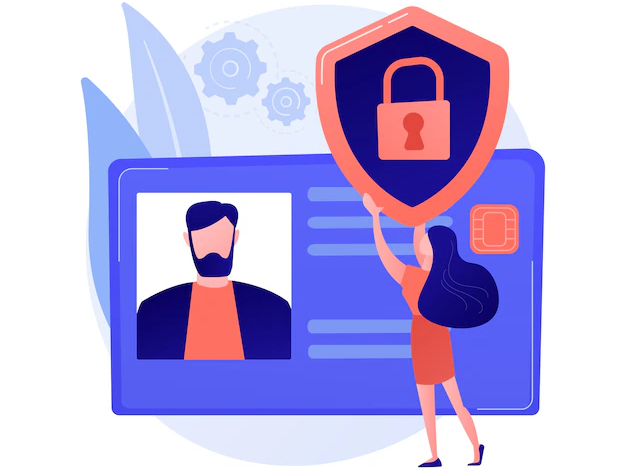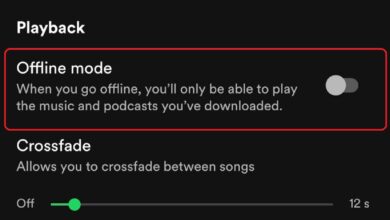The Benefits of VPNs in Protecting Personal Information

In an era where personal information is increasingly vulnerable to cyber threats and data breaches, Virtual Private Networks (VPNs) have emerged as powerful tools for safeguarding your privacy.
This guide explores the various benefits of using VPNs to protect your personal information and offers insights into how top VPNs work to keep your data secure.
How VPNs Protect Personal Information
VPNs offer several key benefits in protecting personal information:
Data Encryption
One of the primary functions of a VPN is to encrypt your internet connection. When you connect to a VPN server, your data is encrypted before it travels over the internet.
This encryption makes it extremely difficult for cybercriminals and hackers to intercept and decipher your data.
Anonymity
VPNs mask your IP address by routing your internet traffic through a server in a different location.
This means that websites and online services cannot trace your real IP address back to you. As a result, your online activities remain anonymous.
Protection on Public Wi-Fi
Using public Wi-Fi networks, such as those in cafes, airports, or hotels, can expose your personal information to potential threats.
VPNs create a secure tunnel for your data, preventing unauthorized access and ensuring your information remains confidential even on unsecured networks.
Bypassing Geo-Restrictions
VPNs allow you to connect to servers in different regions, effectively changing your virtual location.
This enables you to access content and services that may be restricted or unavailable in your physical location. It’s a powerful tool for accessing global information while protecting your privacy.
Preventing ISP Monitoring
Internet Service Providers (ISPs) often monitor and track their users’ online activities. By using a VPN, you can prevent your ISP from collecting data about your browsing habits, ensuring your online privacy.
The Importance of Privacy in the Digital Age
In today’s digital age, personal information is a valuable commodity. Whether it’s your browsing history, financial transactions, or personal messages, the data you generate online can be exploited if it falls into the wrong hands.
This is why privacy has become a fundamental concern for individuals and organizations alike.
The following sections delve deeper into the benefits of using a VPN to protect your personal information and privacy.
Encryption
Imagine sending a postcard through the mail with your personal information and messages written on it. Anyone who handles the postcard can read its contents. When you send data over the internet without encryption, it’s like sending a digital postcard—vulnerable to interception.
VPNs use encryption to turn your digital messages into unreadable code during transit. This means that even if cybercriminals intercept your data, they won’t be able to decipher it without the encryption keys.
The most common encryption protocols used by VPNs include:
- AES-256 bit encryption: This is considered one of the most secure encryption methods available.
- OpenVPN: An open-source protocol known for its strong security features.
- WireGuard: A newer, highly efficient protocol known for both speed and security.
With encryption in place, your personal information remains confidential and secure, whether you’re browsing the web, conducting online banking, or sending sensitive emails.
Anonymity
Your IP address is like your digital fingerprint. It reveals your location, your internet service provider, and potentially even your identity. Websites and online services can track your IP address to gather information about your online activities.
VPNs mask your real IP address by rerouting your internet traffic through a server located in a different region or country. This server becomes your new IP address, making it nearly impossible for websites to trace your online actions back to you.
Here’s how anonymity protects your personal information:
- Privacy: Anonymity ensures that your online activities remain private. No one can track your internet behavior based on your IP address.
- Security: Cybercriminals and malicious actors won’t be able to target you based on your IP address, reducing the risk of cyberattacks.
- Access: Anonymity allows you to access content and services that may be restricted in your region. You can browse the internet as if you were in a different location.
Whether you’re concerned about your online privacy or simply want to access geo-restricted content, the anonymity provided by a VPN is a valuable asset.
Protection on Public Wi-Fi
Public Wi-Fi networks are convenient, but they come with security risks. Hackers often target these networks to steal personal information from unsuspecting users. When you connect to a public Wi-Fi network without a VPN, you’re potentially exposing your data to these threats.
A VPN creates a secure tunnel for your data, encrypting it before it leaves your device. This means that even if someone tries to intercept your data on a public Wi-Fi network, they’ll only see encrypted gibberish.
Key benefits of using a VPN on public Wi-Fi networks:
- Data Security: Your personal information, such as login credentials and financial details, remains safe from prying eyes.
- Protection from Cyberattacks: Hackers won’t be able to exploit vulnerabilities in the network to compromise your device.
- Confidentiality: Your online activities on public Wi-Fi become private and inaccessible to others on the same network.
Whether you’re sipping coffee at a cafe or waiting for a flight at the airport, a VPN ensures that your personal information stays secure on public Wi-Fi.
Bypassing Geo-Restrictions
Have you ever encountered the frustrating message, “This content is not available in your region”? Geo-restrictions are a common hurdle that prevents you from accessing certain websites, streaming services, or online content based on your location.
VPNs provide a simple solution by allowing you to connect to servers in different regions or countries. When you connect to a server in a location where the content is accessible, you can bypass geo-restrictions and access the content you want.
Key advantages of using a VPN to bypass geo-restrictions:
- Access to Global Content: Enjoy unrestricted access to streaming services, websites, and content from around the world.
- Stream Content Anywhere: Watch your favorite shows and movies, even when you’re traveling abroad.
- Online Freedom: Overcome censorship and access information that may be restricted in your region.
VPNs empower you with the ability to explore the internet without limitations, ensuring that your online experience is not bound by geographic boundaries.
Preventing ISP Monitoring
Internet Service Providers (ISPs) are responsible for delivering internet access to your home or device. However, many ISPs also monitor and collect data about their users’ online activities. This data can be used for various purposes, including targeted advertising and traffic analysis.
Using a VPN effectively shields your online activities from your ISP. Here’s how:
- Data Privacy: ISPs won’t be able to monitor your internet usage, ensuring that your online activities remain private.
- No Bandwidth Throttling: Some ISPs throttle internet speeds for specific activities or during peak times. With a VPN, your ISP can’t determine what you’re doing online, preventing throttling.
- Avoid Data Logging: VPNs, especially those with a strict no-logs policy, don’t store information about your online activities, further protecting your privacy.
By encrypting your data and routing it through secure servers, a VPN ensures that your ISP can’t track, monitor, or record your online behavior.
Conclusion
VPNs play a vital role in protecting personal information in an increasingly digital world.
Their encryption, anonymity, and ability to bypass geo-restrictions make them valuable tools for safeguarding your privacy.
Whether you’re browsing the web, conducting online transactions, or accessing restricted content, a good VPN can help keep your personal information safe from prying eyes and potential threats.
Frequently Asked Questions – (FAQs)
Are All VPNs Equally Effective in Protecting Personal Information?
No, the effectiveness of a VPN in protecting personal information depends on several factors, including the VPN provider, encryption protocols used, and server locations. It’s essential to choose a reputable VPN service for optimal protection.
Can I Trust Free VPN Services with My Personal Information?
Free VPN services may have limitations and may not provide the same level of privacy and security as paid VPNs. Some free VPNs may log your data or display ads. It’s advisable to use a trusted paid VPN for robust protection.
Do VPNs Keep Logs of User Activities?
Not all VPNs keep logs of user activities. It’s crucial to review a VPN provider’s privacy policy to determine their logging practices. Reputable no-logs VPNs do not record your online activities, ensuring greater privacy.




